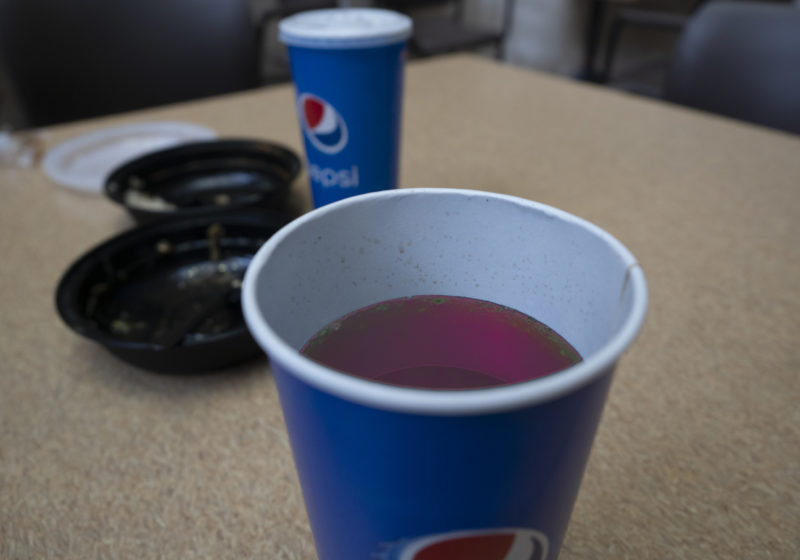URMC and the Lean Producing Student Association (LPSA) have reached a price and output agreement, formally ending the price war and formalizing the University-wide cartel. The agreement comes as Ketamine use skyrockets on campus following Pete Davidson’s suggestion during Winterfest this February.
The deal between URMC and LPSA will drop the weekly production rate down to 25 gallons per week, from a staggering 80 gallons this past week, with the goal to shore up prices back to roughly $100 a pint. The Hill Court market saw prices as low as $10 a pint on Wednesday, an all time market low.
“Nationwide, lean prices have been on the rise and I am very happy about the price situation on campus,” sophomore and lean consumer Ronald Chandoo told CT. “Today I paid $40 for half a gallon of lean, this is like a dream come true.”
The price war entered its fourth week as negotiations began this past Thursday. Campus-wide lean reserves vastly outpaced demand and after several economists warned that without a production correction, current market conditions could produce negative prices within the next week.
“If demand were to continue dropping at its present rate and production were to remain stable, the market could collapse next week,” analyst and PhD student Brittany Bonita said to a forum on Tuesday. “Producers need to realize that they are in a very dangerous spot and need to work together to avoid collapse.”
Lean prices have dropped off steeply over the past month as the LPSA and URMC continued high outputs amid price disagreements while demand rapidly dropped off as consumers fled to ketamine in droves. Many attribute this temporary switch to Pete Davidson’s suggestion that UR students try ketamine instead.
“Pete Davidson is my icon and I basically would do anything he said,” first-year student Kelly Act Kedzington told CT. “Honestly it was time to take a break from lean and go to something different, I think Pete made the right call here.”
The trend surprised industry leaders as many analysts did not see ketamine and lean as having such a stark inverse relationship. The recent threat of market collapse finally brought URMC and LPSA to the bargaining table in order to protect their mutual interests. “Overall I am quite happy with our deal with URMC; they have finally recognised us as a stakeholder in the market,” senior and lead negotiator for LPSA Kyle Sizzurp told CT. “This is a huge milestone and shows the power students have if we stand together under one unified front. Collective action works, folks.”
LPSA was founded in August of 2020, as roughly eight student producers came together in order to try and control market prices. At the time, URMC still controlled 80% of the market, although this has dropped to 40% as of February 2022 due to LPSA’s growth in capacity and membership. Negotiations with URMC will help to not only stabilize the market but also serve as a recognition of student power within the market.
“With the cartel limiting supply and ketamine demand beginning to drop off, it seems that the market will stabilize over the next couple of weeks,” Simon School of Business Economics professor Mark Lizzo told the CT. “I see confidence over the medium term that the lean market will rebound quite strongly, the ketamine surge appears to only be temporary.”
URMC’s lean division declined to comment for this story.




